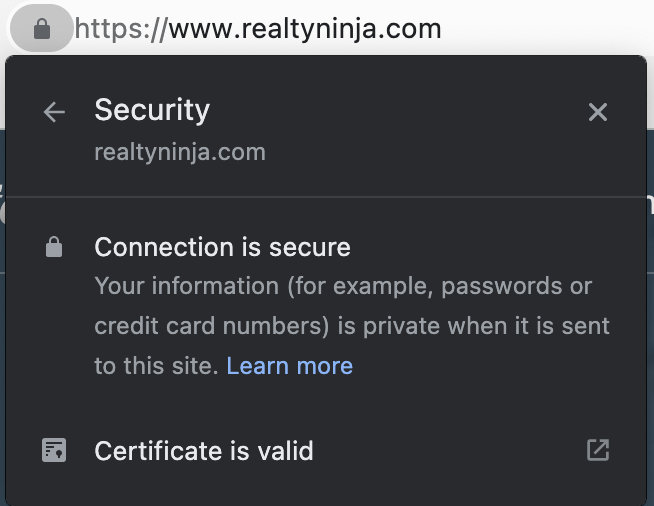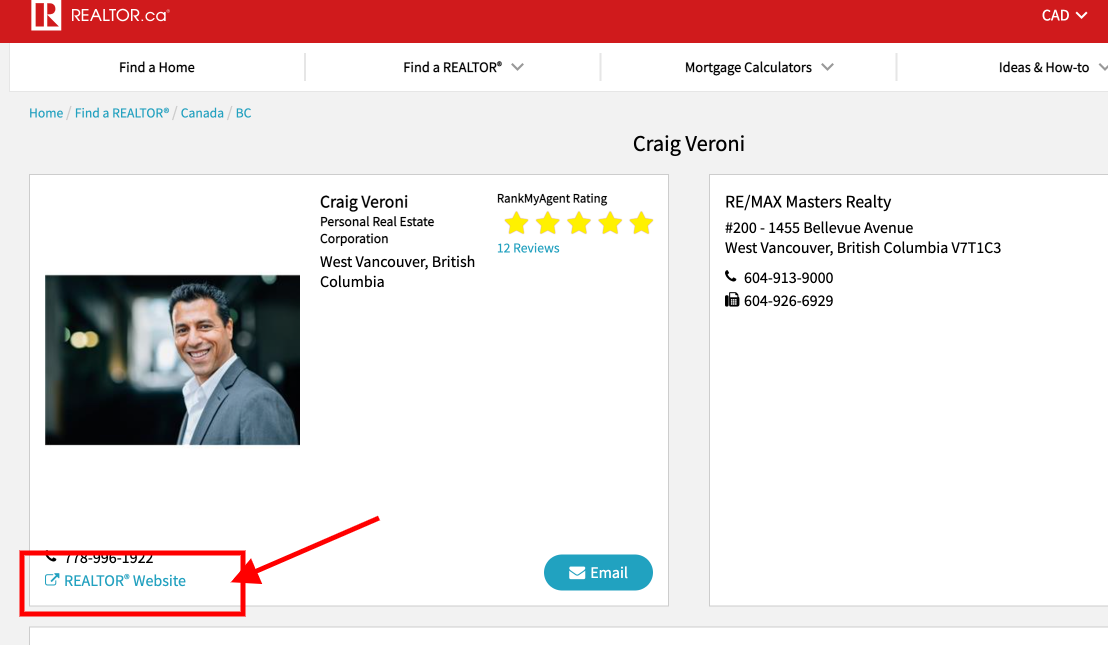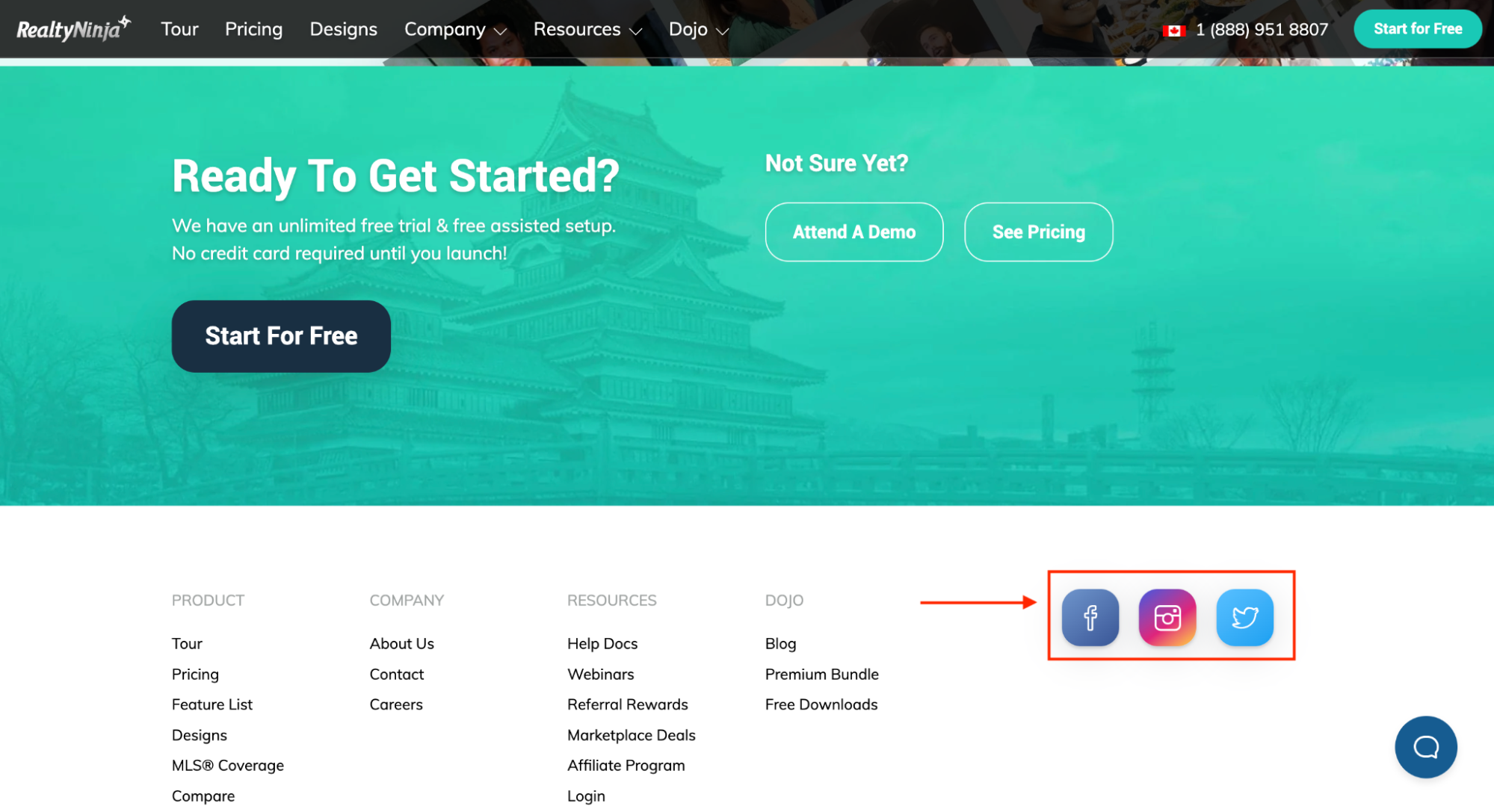Every real estate agent dreams about getting quality local leads on autopilot. Fewer cold calls, meetings with highly qualified prospects, and of course, more homes sold.
How can you make this dream a reality? The answer: SEO (search engine optimization), aka showing up and standing out on Google when people search for the real estate services you provide.

The best part about SEO? It never rests. It generates leads for you 24/7, without the need to tap into your network, buy bus bench ads, or knock on doors.
The challenging part is that it can seem super daunting and ever changing. You can easily get stuck in the thick of it, making all sorts of tweaks and adjustments that don’t create the results you thought they would.
There are hundreds of SEO tips floating around the web, but you shouldn’t worry about the small tweaks if the bigger ticket items aren’t dealt with first. It’s like someone spending a bunch of time and money to add a big spoiler to their old car, thinking that’s what they need to win a race. In reality, they need to first make sure crucial items like the engine and tires are optimized for peak performance before making micro tweaks. Work smarter, not harder!

Optimizing your SEO can be a fairly steep learning curve if you’re not too familiar with it already – luckily, we’ve done a lot of the hard work for you! We have our own internal 10-step checklist that we’ve condensed over the years to optimize some of those big ticket items we alluded to. Of course, it isn’t all encompassing. Think of it as the 80/20 ratio… These 10 things are the 20% that have the potential to get you 80% of the SEO effect you’re after.
This blog will outline and explain each steps’ importance and at the end you can download the checklist for your own reference at the end.

10 Basic SEO Audit Steps
1. Does your domain load properly? Does it have SSL?
You’ve probably read or been told the following when an appliance isn’t working: Check to make sure it’s plugged in and turned on… It sounds silly, but you would be surprised how often the issue is simply that the website was not launched properly or is even offline completely.
Plus, in 2014, Google began pushing websites to adopt HTTPS in an attempt to improve security across the web. As a result, they rewarded SSL-secured sites with slightly higher SEO rankings. And just so you know, all RealtyNinja websites are SSL-secured by default ;)
To check your own website, load your domain in your browser and check to ensure it loads properly under your domain (not sitename.realtyninja.com) and with SSL enabled (https).

2. Does your domain show in Google’s search results?
Open a new tab and search for “site:www.yourdomain.com” and see if your website shows in search results. Make sure you search without the “https://” part (example: site:www.realtyninja.com). What this does is tell google to show you all of the pages on your website that are in its search results. If there are no results shown, then that means that your website is either too new to be in Google’s index or that there are some underlying problems that need to be investigated. This is an important indicator and will help inform your general SEO strategy.

3. Does your website have unique content?
Unique content is crucial in Google’s all-knowing, all-seeing eyes. If all you have is the default content, MLS® search, headlines, and photo placeholders that came with your site, then Google might deem your site not interesting or unique enough to fully crawl and rank your site well.
SEO aside, default content also isn’t very exciting for potential clients to read! It’s plain and impersonal, and not at all how you want your website or business to come across!
When auditing this step, click through the website and look for at least 5 pages that have unique content and a bare minimum of 150 words. Don’t have the time (or patience) to count each word manually? Use https://wordcounter.net/website-word-count.

Example:
- Your Guide to Running a Real Estate Blog (2046 words)
- https://www.realtyninja.com/about-us (574 words)
- https://www.realtyninja.com/referral-rewards (653 words)
4. Is your blog up to date?
This step goes hand-in-hand with the previous step. Most pages on your site (About, your bio, etc.) are fairly static and won’t change much.
Your blog, however, is a golden opportunity to update your website with new and unique content on a semi-regular basis – this is *chef’s kiss* in Google’s eyes.

Your blog is like a salesperson who works nonstop when you’re busy meeting clients and showing listings. An active (and relevant) blog page shows potential clients that you’re up-to-date on current market trends and activity, whereas an outdated blog is a solid indicator to potential customers that you’re not on top of things and, potentially, not in business anymore.
Head over to your blog and check how many times you’ve posted as well as how recently they went live. Not sure where to start with blogging? Check out our guide to running a real estate blog!

Bonus: Make sure the posts are relevant to your business and contain at least 300 words.
Example:
- https://www.realtyninja.com/blog/
- Real Estate Website Technology 101 – Part 3: DNS, Hosting, Browsers & SSL Security
- Your Guide to Running a Real Estate Blog/
- 5 Real Estate SEO Mistakes to Avoid
- Marketing Checklist: Your First Year as a Real Estate Agent
- 2021 Year in Review, Recent Product Updates & Holiday Hours
- Instantly Improve Your Real Estate Website With Better Typography (Includes Designer Pairing Options)
5. Does realtor.ca link to your website?
Go to realtor.ca in a new tab, and search for your name. Make sure that your profile has a link to your website and click on the link to ensure it’s redirecting properly. This act of one website linking to another page on a website is called backlinking and is incredibly valuable in the SEO world.
Backlinks are important because they signal to Google that another resource finds your content valuable enough to link to it within their own content. A big, trustworthy site that links to your website, like realtor.ca, is going to give you brownie points with Google.
Think of this analogy: kids in primary school are often vying for the popular kids’ attention. You’re not considered cool and are often ignored by the other kids, but as soon as you get invited to eat lunch at the popular table, everyone’s opinion about you shifts and they start to see you in a new light.
- Popular kid: realtor.ca
- You: your website
- Other kids who don’t pay much attention to you until you have the stamp of approval from the popular kids: Google

6. Does your brokerage profile link to your website?
The same idea as the last step applies here. We can’t reiterate how valuable backlinks are! If other sites link to the same website, Google can infer that the website’s content is worth linking to, and therefore also worth ranking higher on search pages.
Getting your brokerage and realtor.ca profile to link to your website are easy ways you can start building that trust with Google.
Google your brokerage’s website and navigate to the “agents” page.

Find your profile and make sure there’s a link to your website. Don’t forget to double check that the link works!
Bonus tip: the more backlinks, the better! If you partner with a mortgage broker or lawyer, see if they’re willing to call out the partnership on their website by linking to yours. Building up your backlinks are a great way to improve your SEO score – just make sure they’re coming from legit sources and not from fraudulent, spammy sites.

7. Do your social channels (at least 1 network) link back to your website?
Backlinks, backlinks, backlinks! Noticing a theme here?
Think of your social channels as vehicles that bring traffic to your website. If someone stumbles across your Instagram or Facebook page and likes what they see, they’re going to want to check out your main website and, hopefully, get in touch! Make it easy for them to find you by linking your website on all your social channels.
First things first: your website header or contact form/widget should have links to your social media channels.

Click into each one and make sure your website is listed and it’s a working link. The more networks/backlinks the better!
Examples for various networks:
8. Have you customized your meta title and description settings?
The meta title refers to the title of a web page that is displayed both in Google’s result snippets as well as the page’s tab in browsers. They have little effect on direct SEO ranking these days, but they go a long way in conveying the page’s topic, purpose, and relevance to searchers.
Your meta title and description tags are used to form the headings of search results, and can therefore increase clicks to your website, so it’s worth taking the time to update!
Most website providers, including us, automatically set SEO-optimized tags, but you should spend some time tweaking them to be more relevant to your brand and target audience. If you ever want to check these default tags for the pages on your website, you can do so by following these steps.

9. If you have listings, have you made them unique on your website?
Note: This one only applies to agents with at least 1 active listing of their own.
Even though you wrote the MLS® listing description for your own listings, it’s now shared on thousands of other sites. When identical content appears in more than one place around the web, Google isn’t too pleased about it.
We encourage agents to enhance their own listings with a unique description, photos and PDFs that are not just a copy of what is on the MLS® to ensure that their own copy is unique in the eyes of search engines. Check out these helpful tips when writing your listings!
10. Are you focused on a niche?
There’s no beating around the bush: real estate is a competitive industry, especially if you work in a large metro area.
So how do you stand out and get your website in front of the right people? Focus on niching down and portraying yourself as someone who is an expert in a certain neighbourhood, property, type, or clientele, rather than coming off too broadly.
When you get specific about who you serve and talk about it throughout your website, you instantly stand out from the sea of qualified real estate agents in your area.
If someone’s search term matches the niche keywords on your site, your site will have a higher chance of showing up in Google’s search results.

Highly competitive terms like “Vancouver realtor” are dominated online by big websites (think: Realtor.ca, rew.ca, etc) and it could take years of work and money for an individual realtor’s website to rank for them.
That being said, your website can still rank by including very specific keywords related to your niche (such as your neighbourhood and target demographic) or even your own name.
Final thoughts
There you have it – a solid starting point for auditing your real estate website’s SEO.
We’ve taken a deep dive into some areas you can optimize that will have some of the biggest effect on your SEO performance. But remember: focus on optimizing your engines and tires before installing that snazzy spoiler.
Lastly, optimizing your SEO can be a huge task that takes a lot of time and brain power. Changes don’t have to be made all at once! Google likes to see consistent improvements over time, so chiselling away at them over a couple of months is totally fine.
Search engines take a while to react to site adjustments and improvements, so don’t expect to log in the next day and immediately see your website on the first page of Google. Climbing the ranks can take many months, but know that your efforts to improve your SEO are compounding and working towards raising your position in search engine rankings.
As you build out and optimize your SEO strategy, use this checklist as a solid starting point.
Download The Printable Checklist
We hope you enjoyed reading this article! You can download a free printable PDF version of the checklist by entering your email below.
Bonus SEO resources:
Learning about SEO and positioning yourself as an expert is a bit of a journey. It’s all about staying on top of SEO best practices and improving bit by bit. You might not have the capacity to take this on alone, but the Ninjas are here to help!
We’ve compiled a list of our most helpful SEO resources below:
- SEO blog articles – we answer some of our commonly asked SEO questions and share our own SEO tips with you.
- Ultimate SEO Webinar recording – this is a high level summary of our massive SEO user-guide.
- Free SEO Resource bundle for Realtors® – This in-depth SEO bundle is going to arm you with everything you need to help increase your search engine rank.







